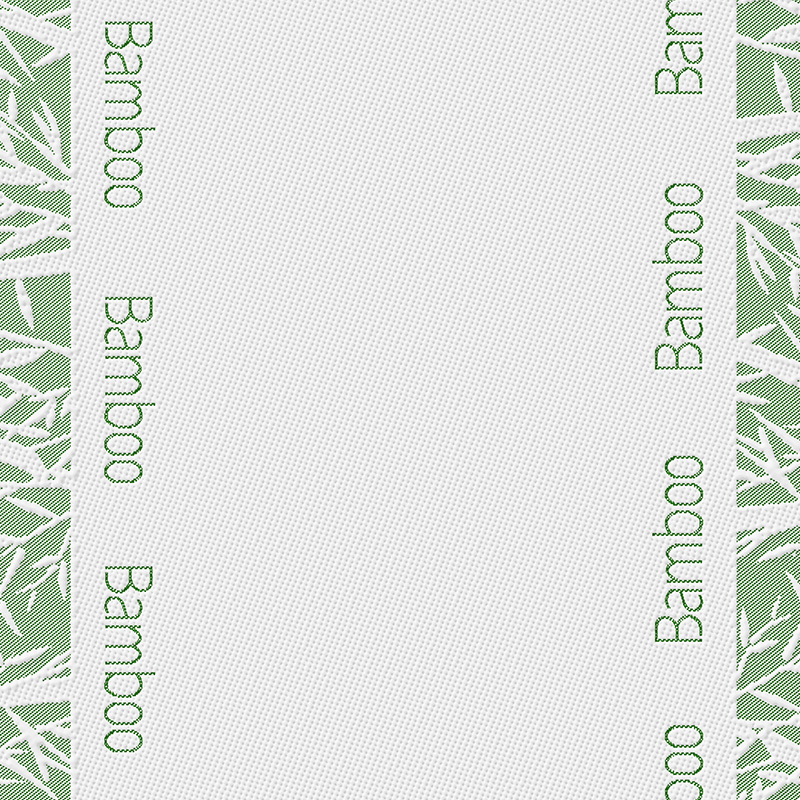Bamboo: A Sustainable Resource
Bamboo is often hailed as one of the most sustainable resources on the planet. It is a type of grass that grows incredibly fast—up to 3 feet in just 24 hours under optimal conditions—without the need for chemicals like pesticides or fertilizers. This rapid growth cycle makes bamboo a renewable resource that can be harvested sustainably without depleting natural ecosystems. Moreover, bamboo plants require minimal water compared to other crops like cotton, making them a more environmentally friendly option in terms of water conservation. The use of bamboo as a raw material for textiles significantly reduces the environmental impact of fabric production.
The Environmental Impact of Bamboo Knitted Fabric
The process of converting bamboo into knitted fabric is generally considered more sustainable than the production of other common fibers. The mechanical method of turning bamboo into fiber, while labor-intensive, involves less chemical processing compared to synthetic fibers like polyester or even conventional cotton. Additionally, the bamboo plant's ability to absorb carbon dioxide and produce oxygen helps mitigate greenhouse gas emissions, making bamboo fabric a more eco-conscious choice. However, it's important to note that some chemical processing is involved in the production of bamboo viscose, so consumers should look for certifications like OEKO-TEX or GOTS to ensure the fabric is produced responsibly.
Bamboo Fabric and Ethical Fashion
With ethical fashion on the rise, bamboo knitted fabric fits perfectly into the movement for sustainable and responsible textile production. The fabric is often produced in facilities that prioritize ethical labor practices and environmental responsibility. As consumers become more aware of the social and environmental impact of their clothing choices, bamboo fabric provides a way to align personal style with eco-conscious values. Fashion brands are increasingly incorporating bamboo fabric into their collections, offering everything from casual wear to high-end garments that are both stylish and sustainable.

Bamboo Fabric’s Comfort and Health Benefits
Beyond its sustainability, bamboo knitted fabric is renowned for its comfort and health benefits. The fabric is naturally soft and smooth, offering a luxurious feel on the skin. It is also hypoallergenic, making it ideal for people with sensitive skin or allergies. This is particularly important for baby clothing, where the fabric’s gentle touch and lack of harsh chemicals make it a safe choice for infants. In addition to being hypoallergenic, bamboo fabric also offers UV protection, blocking harmful ultraviolet rays from penetrating the fabric. This feature makes it a great option for outdoor clothing, providing both comfort and health benefits.
Thermal Regulation and Moisture Management
One of the reasons bamboo knitted fabric is gaining popularity in both fashion and home textiles is its ability to regulate temperature. Bamboo fibers have micro-gaps that allow for better ventilation and breathability, keeping the body cool in hot weather and warm in colder temperatures. This thermal regulation property is especially useful in bedding, where bamboo sheets and blankets provide year-round comfort. Additionally, bamboo fabric excels at moisture management, wicking away sweat and moisture from the skin. This feature is particularly beneficial for sportswear, where moisture control is essential for performance and comfort.
Durability and Longevity
While bamboo knitted fabric is soft to the touch, it is also incredibly durable. The fibers are strong and resilient, allowing the fabric to maintain its shape and integrity even after repeated use and washing. Unlike some other fabrics that tend to wear out or lose their softness over time, bamboo fabric retains its luxurious feel and strength. This durability makes it a long-lasting investment for consumers who want to reduce their consumption of fast fashion and focus on quality, sustainable products.
Popular Uses of Bamboo Knitted Fabric
The versatility of bamboo knitted fabric makes it suitable for a wide range of products. In the fashion industry, it is commonly used to create casual wear, activewear, and intimate apparel. Its moisture-wicking and breathable properties make it ideal for clothing worn during physical activity or in warm climates. Bamboo fabric is also widely used in home textiles, such as bed linens, towels, and even upholstery. The fabric’s durability and natural antibacterial properties make it an excellent choice for products that require frequent use and washing.